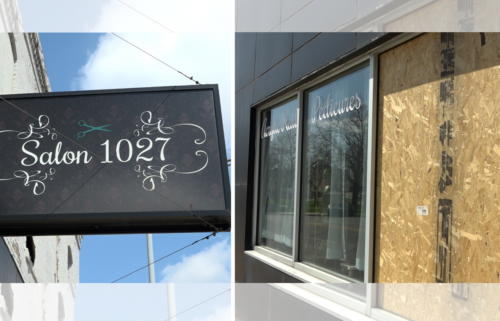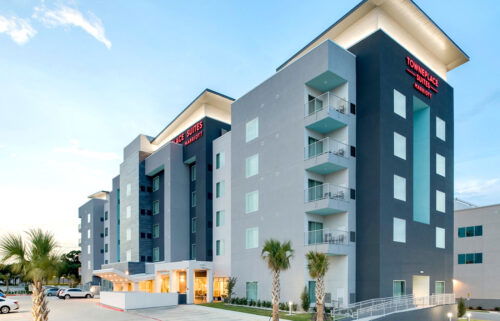Missouri pushes for income tax cuts, setting path to eliminate them



ST. JOSEPH, Mo. (News-Press NOW) -- Missourians could see a wide-ranging tax cut plan passed by the state legislature this year, the latest push toward eliminating the state income tax.
Among the provisions in a $1.3 billion tax cut plan passed by the House in March is a gradual reduction in the state income tax from 4.7% to 3.7% over the next 10 years. The plan would establish a flat rate of 4.7% on the taxable income of all Missouri residents, removing all existing taxable income brackets in the process.
Senate Majority Floor Leader Tony Luetkemeyer, R-Parkville, told News-Press NOW he expects a tax cut package to be on the Senate floor in early April.
“I feel pretty optimistic that we're going to get some type of tax relief for Missouri citizens this year,” Luetkemeyer said. “We think that's the best way to grow and to stimulate the economy. We've seen other states in the Midwest, like Tennessee, for example, who have done this successfully.”
Luetkemeyer said the ultimate goal is to eliminate the income tax completely through a system where automatic reductions would be triggered if state revenues exceed projections.
HB 798, which had a public hearing in the Senate last Wednesday, would trigger reductions of 0.10 if revenues grow by at least $175 million per year.
If the income tax is eventually phased out, Missouri would become the ninth state to implement such a change, joining Texas, Florida and Alaska, among others.
"This is similar to the balanced approach the legislature has taken in cutting the income tax in the past. I think that's the approach you're going to see the General Assembly take," Luetkemeyer said. "And that would be true for all forms of income tax."
Retired St. Joseph resident Chris Silkwood thinks income tax reductions in the long run would be a benefit for many low- to middle-class residents.
"I paid into it badly when I was working for the last 50 years," Silkwood said. "And then all of the other taxes, it adds up."
If the measure does succeed and income taxes are reduced -- or eliminated one day -- rates can only be raised again if voters approve a ballot measure, putting even more pressure on lawmakers to craft the right plan on the first attempt.
Income taxes generate more revenue for the state than any other source, with 69% of $13.1 billion in general revenue last year coming from individual and corporate income taxes alone.
"I'd support (cuts) as long as they're looking at it to make sure they're not pushing boundaries or going into debt," Silkwood said.
State revenue increased by 1.5% last year in Missouri and is forecast to grow by 1.6% in the coming fiscal year.
Sales tax receipts also have grown considerably over the last seven years, a combination of rising inflation and an infusion of new revenue from use taxes and marijuana taxes. Missouri's new sports gambling law also will provide additional revenue.
Despite that, Luetkemeyer believes the underlying strength of the Missouri economy -- and less about new revenue streams -- will support future cuts.
"We're spending record amounts of money funding every department, state government, whether it's education, health care, we've managed to do all of that while still cutting the income tax at least two different times since I've been in the General Assembly," Luetkemeyer said.
Missouri's top income tax rate has steadily declined from 6% in 2017 to 4.95% in 2023 as part of a similar tax cut plan approved in 2014. The latest measure would also reduce Missouri's corporate income tax from 4% to 3.75%.
The prospect of future cuts has budget experts like Traci Gleason with the Missouri Budget Project concerned about decreased state revenue long-term to help support communities, state services and education.
Gleason's organization is responsible for informing public policy decisions through objective research and analysis of state budget, tax and economic issues. She isn't convinced the triggers would be enough to prevent long-term challenges despite the increased spending and state revenue currently.
"When folks say it's a record amount (of spending), that doesn't take into account that what you spent in 2007 is not worth the same in 2025. Missouri isn't investing as much. So when you look at those so-called triggers, they don't address all of those changes. And so fundamentally, they allow these cuts to go into effect without protecting the services that people need in their daily lives," she said.
Elementary/secondary education, corrections, higher education and mental health services were supported by hundreds of millions from the state income tax last year.
Gleason said the impact of gradual cuts would be similar to a frog in a frying pan, in which the trickle down effect happens so gradually that many wouldn't notice it from year-to-year.
"Missourians have seen a lot of local taxes go up because as the state has disinvested from some of its responsibilities and pulled back from its role in funding, localities have picked up the slack. So taxpayers in the end aren't seeing, you know, any savings. They're just paying it to different places," she said.
Currently, due to narrow tax brackets, which hover between 2% and 4.7%, most residents are taxed at the highest rate, which automatically kicks in for those with taxable income of more than $8,911.
However, those who fall in lower brackets would see their income tax rate increase immediately to 4.7% as part of the new flat rate, increasing the burden on low-income residents to support the state's key services than wealthier individuals, Gleason says.
"Right now, for instance, the bottom 20% pays 9.8% of their income in state local taxes. The middle quintile pays 8.6%. The top 1% pays only 5.7%," she said. "When you look at elimination of the income tax … that top 1% goes down to 2.4%, that middle third pays 6.8%, and the bottom 20% still pays 9.62%."
Some lawmakers have proposed eliminating the income tax entirely by 2027 and shifting to an expanded sales tax on a variety of other services not currently taxed, like haircuts and doctor's office visits, a bill that Luetkemeyer said he would not support and is unlikely to come out of the legislature this session.
The tax cut plan also calls for repealing Missouri's Working Family Tax Credit Act, a credit equal to a certain percentage of a worker's federal earned income credit.




